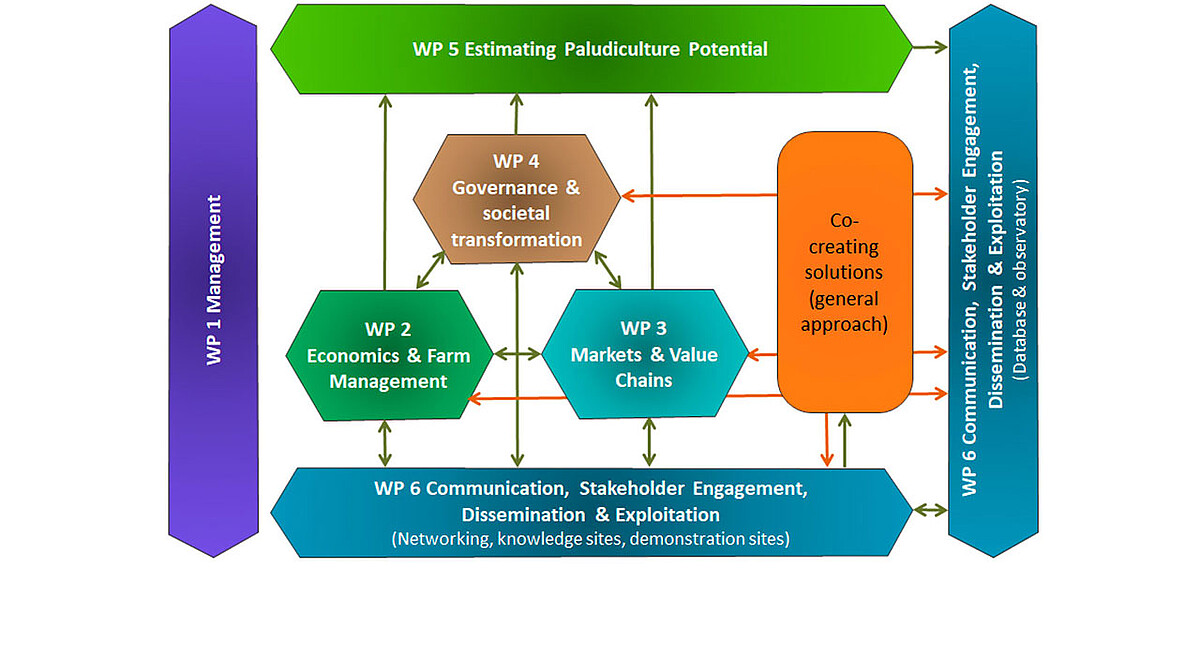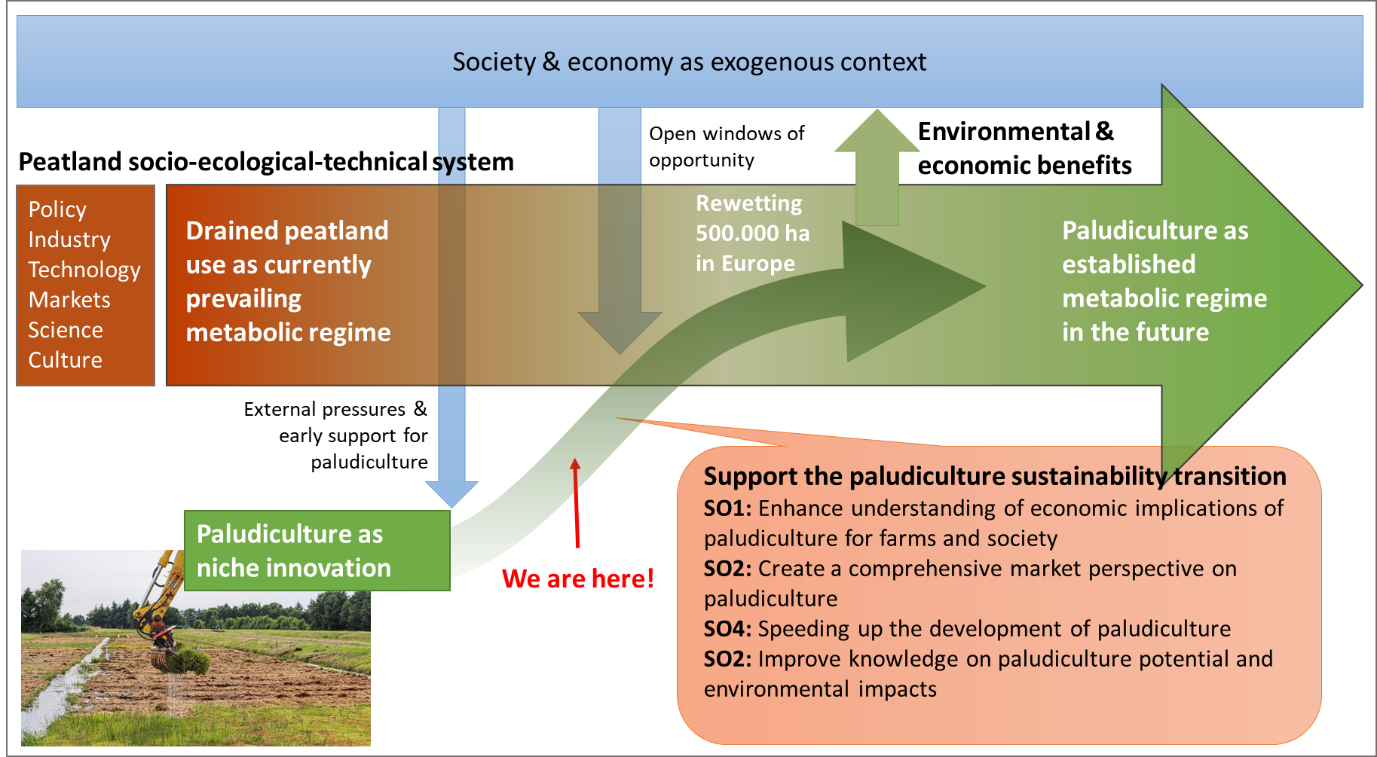Paludi4All
Socio-economic, climate and environmental aspects of paludiculture
Background
Paludiculture, the productive use of wet and rewetted peatlands, is a promising land use alternative. With paludiculture, negative environmental effects of drainage-based agriculture could be mitigated, such as GHG and nutrient emissions, biodiversity and soil loss. At the same time the productive use of biomass provides income alternatives in rural regions.
The large-scale introduction of paludiculture can contribute to reaching EU climate targets, such as carbon neutrality until 2050, mainly in two ways: the emission reduction from rewetting and by replacing fossil resources with biomass from wet peatlands.
Currently, paludiculture is practiced on few pilot sites in Europe and innovative value chains are under development. Likewise, information on many aspects, such as profitability, processing options, acceptance in rural regions and effects on biodiversity are available, but scattered among diverse stakeholders.
Aims of the project
What are the effects of a large-scale implementation of paludiculture in Europe? And what can be done to speed up the implementation and upscaling of paludiculture? These questions are addressed by the EU-funded project Paludi4All (2025-2029). The cooperation between 7 partner organizations in 5 European countries will collate available knowledge on climate, biodiversity, economic and socio-economic aspects of paludiculture and use this information for meta-analyses.
The aims of Paludi4All are in detail:
- Enhance understanding of economic implications of paludiculture for farms and society
- Create a comprehensive market perspective on paludiculture
- Speeding up the development of paludiculture in Europe through social science-based proposals for the governance of this societal change, including incentive mechanisms
- Improve knowledge on the paludiculture potential and environmental impacts
To reach these aims, available information is collected in case study regions, where pilot sites, traditional paludicultures or processing plants already exist. In these regions, Paludi4All organizes workshops with international audience for different paludicultures. In addition, a close collaboration is planned especially with two EU-funded demonstration projects, PALUS DEMOS and PaluWise, which implement paludiculture on large pilot sites.
More information
- Projectwebsite
- More information about the tasks of the working group Landscape Economics
- Paludi4All on the website of FNR
- Paludi4All on the website of the European Union
Partner
- Fachagentur für Nachwachsende Rohstoffe (FNR, Germany) -> Link
- University of Greifswald, Institute of Botany and Landscape Ecology (Germany)
- Johann Heinrich von Thünen-Institute, Federal research Institute for rurall areas, agriculture, forests and fisheries (Germany)
- Natural Resources Institute (LUKE, Finland) -> Link
- Radboud University (Netherlands) -> Link
- Scotland’s Rural College (UK) -> Link
- Institute of technology and nature (ITP, Poland) -> Link















